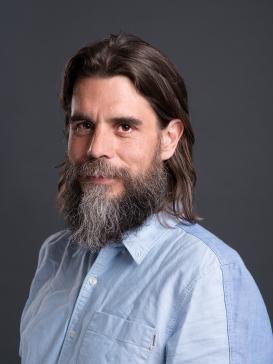
Jochen Büttner currently investigates processes of innovation in the ancient world. A particular focus lies on the question which role knowledge played in these processes and, how in turn, innovation influenced the formation of theoretical bodies of knowledge. In April 2024, Jochen Büttner transitioned to the Max Planck Institute for Geoanthropology.
He retains his longstanding interest in early modern mechanics. His main research theme in this area regards the role of so-called "challenging objects" as mediators between practical and theoretical knowledge in the early modern period.
Jochen Büttner has long been concerned with the use, theoretically as well as practically, of new electronic media in the history of science and, more generally, in the humanities. In this context, he has collaborated in, designed and directed a number of projects.
Projects
BIFOLD - BZML
A Book on al-Khazini’s Book on the Balance of Wisdom
Albert Einstein—Chief Engineer of the Universe (Exhibition 2005)
Atlas of Innovations
Knowledge of Astronomy and the Invention of the Telescope: International Year of Astronomy 2009
Opening up Data for Re-use: Semantic Modeling and Sustainability
Pratolino: The History of Science in a Garden
Research Websites as Research Data
Spatio-Temporal Analysis using Data Visualization
Selected Publications
Eberle, Oliver, Jochen Büttner, Hassan El-Hajj, Grégoire Montavon, Klaus-Robert Müller, and Matteo Valleriani (2024). “Historical Insights at Scale: A Corpus-wide Machine Learning Analysis of Early Modern Astronomic Tables.” Science Advances 10 (43,…
Read More
El-Hajj, Hassan, Oliver Eberle, Anika Merklein, Anna Irene Siebold, Noga Shlomi, Jochen Büttner, Julius Martinetz, Klaus-Robert Müller, Grégoire Montavon, and Matteo Valleriani (2023). “Explainability and Transparency in the Realm of Digital…
Read More
Eberle, Oliver, Jochen Büttner, Hassan El-Hajj, Grégoire Montavon, Klaus-Robert Müller, and Matteo Valleriani (2023). “Insightful Analysis of Historical Sources at Scales beyond Human Capabilities Using Unsupervised Machine Learning and XAI.” arXiv:…
Read More
Burchardt, Aljoscha, Jochen Büttner, and Jürgen Renn (2023). KI-basierte Vorausschau für nachhaltige transformative Resilienz. CO:DINA: Kurzstudie 12. Kaiserslautern: Deutsches Forschungszentrum für Künstliche Intelligenz. https://codina…
Read More
